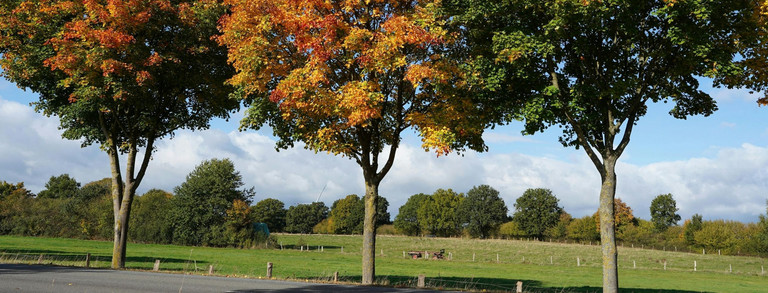Doctoral networks and research training groups
Doctoral networks and research training groups are designed as a network with a joint research program and serve the structured qualification of early career researchers.
Within doctoral networks and research training groups, doctoral students work on joint, mostly interdisciplinary research topics for a certain period of time. Doctoral candidates benefit from a special qualification program and supervision within the network. Doctoral/graduate colleges are attractive for applicants due to the cooperative work on interdisciplinary research topics over a longer period of time (DFG Research Training Groups, for example, up to 9 years). They also help institutions or departments to focus their research. International and/or practice partners can generally be integrated into the networks.+
DFG Research Training Group and MSCA Doctoral Networks
Applications for doctoral programs can be submitted to various funding bodies. The most common, open-topic programs DFG Research Training Group and MSCA Doctoral Networks are described in more detail below.
Funding profile: Structured doctoral funding with a thematically focused research program at a high, internationally visible level; interdisciplinarity is desired. The RTG provides astructured qualification and supervision concept with the aim of early academic independence, shortening the duration of the doctorate and preparing students for the international academic and job market. It is also possible to carry out a Research Training Group with international partners (IGRK).
Scope of funding: Max. 9 years (5 + 4) positions for doctoral candidates and postdocs as well as material resources.
Application, deadlines: The applicant is the university. There are no submission deadlines.
Special features: In the case of DFG collaborative projects, the Grants Services supports the application throughout the entire process. Please contact us at an early stage, already in the planning phase. A few weeks before submission, we will arrange a coordination meeting at the Rectorate.
Selection procedure: Two-stage procedure consisting of an outline and an application for establishment.
Funding profile: The EU-funded MSCA Doctoral Networks promote joint doctoral programs of international consortia in order to train highly qualified doctoral candidates, strengthen their creativity and innovative capacity and increase their long-term employability.
Scope of funding: Funding is available for projects with a duration of up to 4 years (joint doctorates up to 5 years), which employ doctoral candidates and, if applicable, enable worldwide secondments.
Application, deadlines: International consortia with at least three legally independent institutions from three different EU member states or associated countries (at least one from an EU member state) are eligible to apply; further partners from all over the world can be added. Applications are submitted via the EU's Funding & Tenders Portal as part of the respective open MSCA Doctoral Networks calls. In addition to the regular Doctoral Networks (DN), there are Industrial Doctorates (DN-ID), in which doctoral candidates spend at least 50% of their time in the non-academic sector, and Joint Doctorates (DN-JD), which aim for joint/double/multiple doctoral degrees from at least three degree-awarding institutions in different associated countries and have additional requirements for joint programs and degree agreements.
Selection procedure: Selection is made through a competitive, peer-reviewed process via the Funding & Tenders Portal based on the criteria defined in the MSCA work program and evaluation forms (e.g. excellence, impact, quality of implementation). Resubmission restrictions apply to applications with a score of less than 80% in the previous call year
There are also formats from other funding bodies, some of which are very specific and are not advertised on a permanent basis. One example of this is the "NRW Forschungskollegs" program of the Ministry of Culture and Science MKW. There are also various foundation-funded doctoral colleges, such as the Hans Böckler Foundation.



